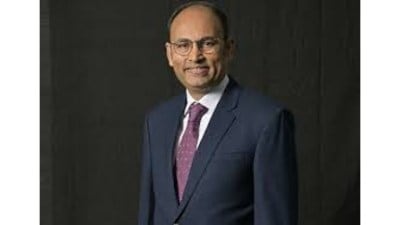Union Budget 2018: The Modi government’s Budget 2018 India will be very crucial. Finance Minister Arun Jaitley will present the Budget 2018 on February 1. The fifth and final Union Budget before the Lok Sabha 2019 will seek to address an of array of issues. However, Prime Minister Narendra Modi had hinted that the Union Budget won’t be a populist one. Expectations of the salaried class will be high from the BJP-led NDA government in Budget 2018. The central had made a few changes in the Budget 2017.
The Modi government should consider offering further tax rebates in the Budget 2018-19 to incentivize savings and to reduce the tax burden on the middle class. A reasonable reduction in the existing personal tax rates would bring cheers to the taxpayers especially in the wake of rising inflation and reducing purchasing power, says the Deloitte Personal tax survey 2018, according to Deloitte.
Personal Tax and Tax calendar
The Personal tax survey captures the views of 697 mid-level managers and attempts to gauge the mood of the taxpayers ahead of the budget. About 55% of the respondents want the basic exemption limit to be raised from INR 250,000 to INR 500,000 in Budget 2018. Interestingly, 84% of the respondents are keen on aligning the tax year (April-March) with the calendar year (January-December), a Deloitte report said.
Read Also: Budget 2018 expectations- On people’s deposits in savings accounts, ICAI wants FM Arun Jaitley to take this big step
WATCH- Budget 2018: 5 Blockbuster Income Tax Moves Common Man Can Expect
Tax deduction on education
With the increasing cost of education, majority of the respondents (94%) indicated an additional deduction should be introduced in Budget 2018 towards the expenses incurred for education of children (up to two children) with a minimum limit of INR 5000 per month per child. Such a move on this front will make educational expenses more affordable for the middle-class Indian families, according to Deloitte.
Tax rebates on home loans
The central government should offer further tax rebates on home loans in order to fulfil its dream of ‘Housing for All’ by 2022 and to give a leg-up to the ailing realty sector in Union budget. In the survey, 51% respondents said that in case of self -occupied property, deduction of interest on housing loan should be extended to at least INR 350,000from the prevailing amount of INR 200,000. Further, in case of an individual owning more than one house property, only one can be considered to be self-occupied. If the other properties are vacant, still a notional rent is offered to tax. According to the survey, 58% of the respondents opined that the concept of taxability of deemed rent on vacant properties should be discontinued. Interestingly, 29% of the respondents indicated otherwise, according to Deloitte.
The tax-free limit for medical expenses
In line with the gradual reduction of corporate tax rates for domestic companies from 30% to 25%, most respondents are in favour of a similar reduction in the tax rates for individuals from 30% to 25% in Budget 2018. Salaried employees are keen to see an increase in the limit for deduction under Section 80C towards certain payments and investments, currently capped at INR 150,000.The tax-free limit for medical expenses, which currently is INR 15,000 annually, was considered inadequate by all respondents. More than half the respondents (58%) are in favour of increasing the limit to INR 40,000 annually, while the remaining (42%) want to double the limit to INR 30,000.
Read Also: Budget 2018: Will petrol, diesel prices fall after February 1? Oil ministry pushes for excise duty cut
Any free meal that is provided by the employer to the employee is taxable if the value exceeds INR 50 per meal. All managers want this limit to be increased in the range of INR 100 to INR 200 per meal. Two out of every five respondents (42%) want it to be raised to INR 200 per meal, the remaining want it in the range of INR 100 to INR 150.
Jurisdiction-free e-assessment.
Close to two-thirds (64%) of the respondents gave a thumbs-up to the concept of jurisdiction-free e-assessment in budget 2018. E-assessments are seen as part of the tax department’s endeavour to expedite and simplify assessment proceedings, reduce the taxpayer’s inconvenience and stamp out corruption. However, 20% of the respondents believe that this move would not be beneficial. The remaining 16% are not sure if this move would be of any help.









